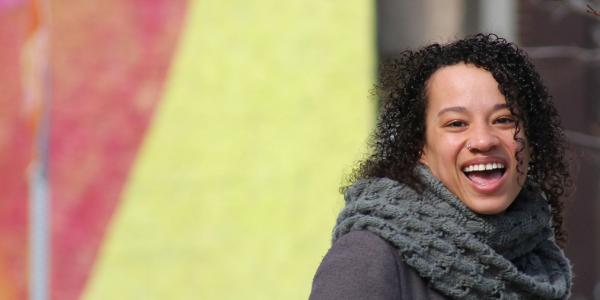Visiting Hurst Professor - Carissa Harris
Public Writing Workshop: Monday, Sept. 19th at 1:30 pm
Public Lecture: Wednesday, Sept. 21st at 4:00 pm
Hurst Lounge, Duncker Hall Rm. 201
* Work-in-Progress Seminar: Friday, Sept. 23rd at 2:00 pm
Coffee Room, Duncker Hall Rm. 210
Reproducing Wenches:
This lecture takes a deep dive into the medieval (and post-medieval) history of the word “wench,” focusing on how it became a derogatory term naming a woman who was young, single, socio-economically disadvantaged, and sexually available. Paying particular attention to "wench maternity," it frames its discussion through the lens of Dobbs vs. Jackson Women’s Health Organization, showing how the concepts embodied by the wench are central to the Supreme Court’s decision, and it looks ahead to the potential futures that the medieval wench embodies.
Public Writing Workshop:
This workshop will focus on the process of turning specialized academic research, or simply academics' pop culture interests, into accessible writing for non-academic audiences. We'll discuss the processes of coming up with ideas, choosing publication outlets, pitching, and working with editors. Participants are encouraged (but not required) to come to the workshop with ideas for potential pieces of public writing, which we can workshop and discuss together.
Suggested Preliminary Reading for the Public Writing Workshop:
- Irina Dumitrescu: https://www.chronicle.com/article/what-academics-misunderstand-about-pub... and https://www.chronicle.com/article/how-to-cope-with-a-fear-of-public-writing
- Sara Fredman: https://electricliterature.com/margery-kempe-had-14-children-and-she-sti...
- Please email jrosenfe@wustl.edu if you plan to attend
* Required preliminary reading for the Work-in-Progress Seminar:
- "The Ends of Fellowship: Obscenity, Felawe Masculinity, and Gendered Vulnerability in Chaucer's Manciple’s Prologue and Tale."
- Please email jrosenfe@wustl.edu if you wish to receive a copy of this paper
Carissa Harris is a writer, scholar, and educator living in Philadelphia, where she teaches courses on Gender and Sexuality in Medieval Literature and Culture. Her first book, Obscene Pedagogies: Transgressive Talk and Sexual Education in Late Medieval Britain (Cornell University Press, 2018), analyzes sexual education, consent, and rape culture from Geoffrey Chaucer’s Canterbury Tales to the Access Hollywood tape. Obscene Pedagogies won the Society for Medieval Feminist Scholarship’s 2020 prize for Best First Book of Medieval Feminist Scholarship.
Harris has published essays for both public and academic audiences on a variety of topics, including medieval histories of intoxication and consent, medieval rape reparations and the Bill Cosby case, the racialized history of the word “wench,” medieval impotence trials, rape and rage in Chaucer’s Legend of Philomela, obscene riddles, the medieval origins of the word “fuck,” and the 600-year-old history of “Teen Mom” entertainment. In addition to writing and teaching, she is an editor for Exemplaria: Medieval/Early Modern/Theory and for The Sundial (a public-facing digital publication by the Arizona Center for Medieval and Renaissance Studies). Harris serves on the editorial board for Medieval Institute Publications’ Premodern Transgressive Literatures series and The Chaucer Review.
